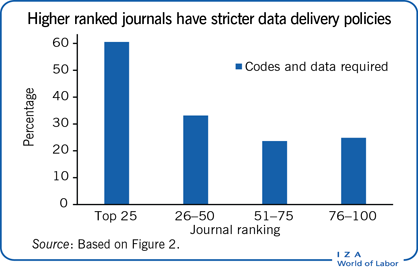Elevator pitch
The open science and research transparency movement aims to make the research process more visible and to strengthen the credibility of results. Examples of open research practices include open data, pre-registration, and replication. Open science proponents argue that making data and codes publicly available enables researchers to evaluate the truth of a claim and improve its credibility. Opponents often counter that replications are costly and that open science efforts are not always rewarded with publication of results.

Key findings
Pros
Open science and research transparency offer the potential to improve empirical economic research’s credibility.
Sharing data and codes may allow other researchers to detect false-positive findings and increase the visibility and prominence of academic publications.
A growing number of free data repositories allow researchers to share information more effectively, thus eliminating the monetary cost of storing data and code.
A growing number of simple, low-cost, editorial policies may easily decrease the extent of publication bias.
Cons
Sharing data in a usable format requires considerable time and effort by knowledgeable people.
There is a lack of funding for, and to some extent interest in, replication studies.
Transparent practices such as pre-analysis plans may stifle researchers’ creativity and possibly prevent important breakthroughs arising from exploratory analysis.
There may be substantial upfront costs to transparency and openness and open science efforts are often not rewarded with publication of results.